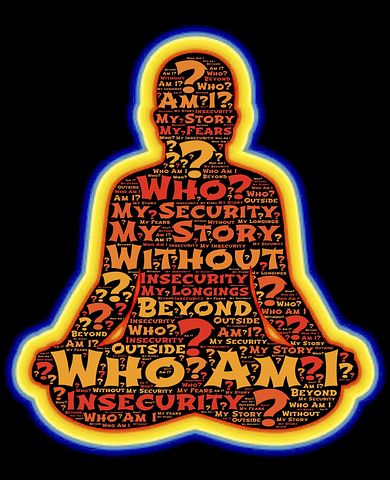
Image from Pixabay

Image from Pixabay
作者:蔡林玲 Claire Chua
Everyone will, at some point in their lives, wonder what will happen after death: is there such a thing called a soul that will live on indefinitely? The answer is: No. Buddha rejects the concept of a soul. In Buddhism, the definition of a soul is an entity that does not undergo any changes, it is something that remains permanently in one state. For example, if you are an evil person, you will permanently remain evil: you are destined to be evil. But we know this is untrue because an evil person could become a better man, be it in this lifetime or the next, as long as the right conditions are met, such as encountering a good mentor or experiencing circumstances in his life that encourage him to eradicate his evil ways.
This is also the reason why Buddhists do not believe in destiny. Nothing is destined because everything is subjected to conditions, and what you experience now is a result of your actions in the past; what you will experience in future is a result of your actions in the past and present. The cause-and-effect is the result of a series of actions that creates conditions. These actions are termed “Karma”.
Even though the concept of a permanent, unchanging soul is not possible nor logical, Buddha does accept the existence of a conventional self. Below is an extract from Traleg Kyabgon’s book: Karma: What it is; What it isn’t; Why it matters. I came across this book in a monastery, and found that its explanation on a "self" is clear and concise. Below is an extraxt from the book. The extract refers to conscious beings as observers and inanimate objects as the observed.
Extract:
As far as the observer’s being an observer is concerned, we are conscious beings, and merely through being conscious, we are aware of things, as opposed to being unconscious of them. Following on from here, to be enlightened means to be far more conscious in our waking state than most of us normally are.
There is no need to posit an extra entity, a real self, to have the idea of an observer, because the function of consciousness is to observe and be aware. This is why it is named “consciousness” in English, and “shepa” in Tibetan, meaning “knowing”. Otherwise we would be unconscious and not distinguishable from the inanimate objects.
There is an observer in Buddhism, of course, just not an unchanging “real me” that observes. If there were no self at all, we would not bother to meditate, as there would be no point since there would be no person to benefit from it. Therefore a conventional self is not denied. According to Buddhism, the observer we speak of, the experiencer, is the bundle of functions and attributes described by the five skandhas, and it is through meditation techniques that we inquire directly into this. We look at our body and find that we are not our body, and that we are not our feelings, or memory, or so on. This something called “me” or “I” is then searched for as a separate entity existing completely independently of our preferences and dispositions, characteristics and personalities.
Normally we think we have these things, these personal characteristics, but somehow “I” remains different from all the things owned by us. In these self-inquiries, we ask, after disowning all these aspects that we have concluded do not ultimately define us – what is left? Nothing. If we are none of these things, not our memories, depositions, body, name, occupation, or any physical and mental attributes – then what are we? Yet we postulate at a deep level something separate from all these things. It is at this juncture that Buddhism states that nobody is there. With thorough investigation, we find this out; we discover, or realize, “no self”. We are not non-existing ghostly beings but quite real – just without an inner essence about which we can say, “Well, this is me”. When we discover that, we realized no self.
End of Extract.
He also mentioned in the book that to be enlightened is to be two things: to have less emotional conflicts and to have mental clarity. Therefore, enlightenment could be attained when you are alive, and not a condition that can only be achieved in your afterlife, as some may believe.
The question “Who am I” is an incorrect question, because “I” is a combination of many elements working together: body, brain, as well as experiences that shape our minds and determine our personalities. Therefore, we cannot find “I” in any of the elements. This reality is a bit frightening to many people, but you must also understand that although there is no “real self”, there is still a “self”, made up of a complex combination of elements, which exists in this world. A “conventional self”, as Traleg Kyabgon puts it.
It is still important for us to study and practice Buddhism to find happiness in this life, and in our next life. Our actions will determine the conditions of our future. Therefore, staying compassionate, doing good deeds, and practising Buddha's teachings to attain enlightenment, will ensure our success in finding the happiness we seek.